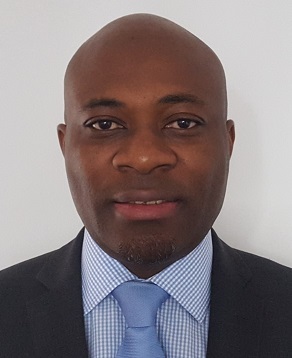 |
Section
0401 |
|
March
2012 (Volume
62 - Issue 3) |
|
Our
objective: To increase awareness,
interest, and involvement in Section activities and quality-related
subjects. |
| 11 - Welcome to our New Members | ||
| 19 - Feedback/Advertising Rates | ||
| 7 - Voice Of The Customer | 14 - ASQ News |
1.
Next
Event
Date Wednesday, March 21, 2012 Time
6:00 PM Place Sheraton Montreal Airport Hotel How
Large Companies Deal With Quality
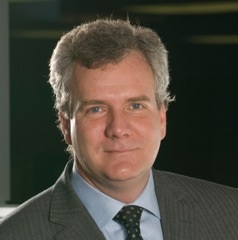 MR. RENE LALANDE Vice President Thunder Bay Bombardier Transportation **************************************
Please join us on March 21st to hear our guest speaker Mr. Rene Lalande present the topic of how large companies deal with Quality. He will be reflecting on his experience at Pratt & Whitney Canada, where he led the implementation of the Achieving Competitive Excellence (ACE) operating system that is proprietary to United Technologies. He will also be talking about the challenges he encountered as VP Quality at Heroux Devtek, and the challenges he currently faces as he tries to bring about cultural changes at Bombardier Transport Division, working in an environment framed by the Bombardier Operating System. Rene has also worked in the automotive supply chain and will contrast that world with the low volume worlds of Aerospace and the Transport Division. |
Ad
/
Publicité
|
||||||||||||||||||||||
|
Rene Lalande first joined Bombardier Transportation in May 2005 as Vice-President of Operations in Mexico. Prior to joining Bombardier Transportation, he worked for 15 years at P&WC, an aircraft engine manufacturer, and for 3 years at Spectra Premium Industries, an emerging tier-1 supplier for the automotive industry. In the early 2000s, Rene also worked in the aerospace sector for the Montreal- based landing gear manufacturer, Heroux Devtek. During his 27 working years, Rene has assumed diverse and challenging career roles including QA Engineer, Methods Engineer, Shop Floor Supervisor, Production Manager, Continuous Improvement Director, General Manager and more. In 2011, Rene assumed the role of Vice-President of Bombardier Transportation in Thunder Bay. His Thunder Bay operation is responsible for the manufacture of several signature Bombardier Transportation rail car products, including the historic BiLevel, the new Toronto Rocket and the MetroLinx Light Rail Vehicle. Rene is respected as a hands-on leader who values team culture and recognizes the contributions of every employee. At his Thunder Bay plant, he is committed to ensuring that manufacturing best practices are the standard, not the exception to deliver on customer commitments. This means producing quality, safety, on time and on budget delivery each and every time. ****************************************************
Cost:
ASQ
Members ($40),
Non-Members ($50)
Supper
and
Parking are included.
Bring
your business cards and be ready to
network. To
register for any event or for more information on events please
contact:
Sukhvinder Jutla Tel: (450) 647-8092 E-mail: Sukhvinder.Jutla@pwc.ca or Mitchell Daudier Tel: (450) 647-7830 E-mail: treasurer@asqmontreal.qc.ca 3.
Sections 404 and 401 Annual Golf Tournament
Base
de Roc, Joliette
Commandites disponibles / Sponsorship opportunities Chantale Simard: Tel: (514) 941-5695 E-mail: section_chair@asqmontreal.qc.ca 4. The Editor's Corner
Last month in the Newsletter, I had published that the ASQ was offering free 2012 ASQ calendars to all member leaders. Naturally, I took advantage of this offer and ordered one for myself. I do not use wall calendars anymore at home, so the obvious thing was to take it to work and place it in my office cubicle. After having it on one of my cubicle walls for a few days, I suddenly realized something somewhat ironic: I was breaking our office 5S standard! The standard that we had created as a Supplier Quality Department dedicated only a specific portion of our wall space to work or personal items (i.e. schedules, calendars, family pictures, certifications, etc.). The rest of our wall space had to be empty. So this very nice ASQ calendar, which is directly related to the work I do, was causing me to be non-compliant to our standard. Could I just move the calendar to this designated area and remove other items in its wake? Yes, but unfortunately: 1) the calendar is too big to fit in the area, and 2) even if it could fit, I do not want to get rid of anything presently in the designated area. So for the time being, I have the calendar up on an “illegal” portion of my cubicle walls. And to date, no 5S audit has flagged this issue. Which begs several questions: 1) Is the existing office 5S standard properly understood by all those who conduct the 5S audits? 2) How thorough a job are the auditors doing when conducting the audits? But perhaps most realistically: 3) Is the fact that I have this calendar up in an ”illegal” area really that important? Let me know what you think: should this be treated like any other non-compliance against an established standard, or should it be left alone considering there is no risk to the “fit, form or function” of my cubicle or to my ability to do my work? |
|||||||||||||||||||||||
5.
A Word
from
your Section Chair
Follow up on my previous article about the labour shortage expected in a few years We've talked about the aging population for a long time. But, since July 2011, Quebec has more people over 65 years of age then 15 and under. It will be a challenge for our organizations to replace those that will retire in a near future. Because there will be less workers to fill all the jobs available, employees will have to be more efficient. I would like to know what plan you have in your organizations to address this issue. Are you planning on more training? Do you have a Continuous Improvement culture implemented and do you think it will help in this matter? The CPMT (la Commission des partenaires du marché du travail) launched Investissement-compétences a month ago. Investissement-compétences is the result of a project undertaken by the members of the Commission, in co-operation with Emploi-Québec, to provide a practical and appropriate solution that will address current issues concerning continuous workplace training in Quebec. In this perspective, the CPMT is participating actively in the Plan emploi métropole (greater Montréal employment plan), by injecting $10 million from the Workforce Skills Development and Recognition Fund. I hope it will help our Organizations, and our Society to win this aging population challenge. |
|||||||||||||||||||||||
6.
Had
You Come
to the
Last Event
By
Eric Stern, ASQ Senior
Member, CQA,
Publicity co-chair
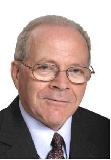 Had you come . . . Enablers for Quality Management in Supply Chains Anjali
Awasthi teaches several quality courses at the master’s level
at Concordia University. Her presentation on “Enablers for
Quality Management in Supply Chains” discussed the results of
Delphi and Interpretive Structural Modeling (ISM) to analyze enablers
of quality systems. Very large amounts of data tested my patience for
the academic mode of dealing with issues, but then I remembered the
very many years when I had learned to deal with that style. The merit
is that the amount of information transferred is maximized. The price
is that, for my taste, there is limited room for interaction. For
example I had little time to discuss the merit of the term
“enabler” vs. my more traditional
“factor” that could enable but also disable,
function of conditions. I suspect that some people can digest and
retain on the spot large amounts of data, others will receive the
electronic version and likely some will focus on the few gems important
to them.
The list of enablers is long. Here is the example of supply chain specific ones surfaced by the Delphi technique: Strategic quality planning, The voice of the customer, The voice of the market, Quality and innovation in product and process design, Designing quality services, and Managing supplier quality. The list of internal and external environmental specific enablers is much longer. Details of the management of time, leadership, ethics, sales, strategy, logistics, inventory, information, products, service, customer interface, design aspects, supplier development, quality services, and IT were presented. Many examples from large and small organizations illustrated the conclusions. New to me was the investigating relationship between enablers using Interpretive Structural Modeling (ISM). It uses a comprehensive systematic model connecting a set of different and directly related elements. The model presents a structure of a complex issue or problem, a system or a field of study, in a carefully designed pattern (Sage, 1977). Creation of such a map enables the user to select priorities in dealing with a very large number of issues. During the question period the applicability of priority setting mechanisms, the benchmarking methods mentioned, the merits and limitations of single sourcing were discussed. As I sometimes mention, these are my personal opinions. Probably others have different ones. The participant survey will probably confirm that most, if not all, participants have learned something about the subject and possibly through networking something about other participants in the room. In addition to section 401, I am also a member of the francophone section 404. It is a good deal that ASQ offers for an annual fee of $20. This month I took advantage of the visit organized by the section at the Royal Thermoplast profile manufacturing plant serving windows and doors manufacturers. The presentation of their quality management system, followed by lively discussions and a visit of their manufacturing and testing facilities gave a flavor of multiple continuous PVC extrusion processes, the challenge of developing and validating new profiles and the testing of complete window systems exposed to harsh conditions. In fact, this visit was open to all ASQ members. Jean Marois, Ioan Miron and Renaud Desrosiers demonstrated their expertise and took good care of the visitors. As a member of the section 404 I had access to the webinar presented by Denis Pronovost on the ISO 31000 Risk Management principles and guidelines. He was kind enough to reserve a copy of the presentation, since I had a hospital appointment on the date of the presentation. I found the subject interesting and the presentation illuminating. So much that I started later an internet search on the subject and I ended up with a bunch of questions. Often answers are not easily available during a presentation. So I ended up with the question: for an interesting subject would it not help the presenter to pre-publish the essence and a couple of the crucial issues, in order to help participants develop interesting questions that can be discussed during the event? Could the newsletter be an instrument for the discussion of pending questions, the way blogs allow for exhausting issues? Or would readers rather maximize the amount of information that the presenter can provide during the event? Eric Stern, CQA, senior member, publicity co-chair, developmental coach and consultant at Expertech CMSC, expressing his own opinions. ericst@iseffective.com For
networking with local
quality professionals explore these groups: http://tech.groups.yahoo.com/group/Quality_Montreal/ http://www.linkedin.com/groups?gid=90170
|
|||||||||||||||||||||||
7. Voice of the Customer
Top 5 Challenges you face as a Quality Professional Here's the final area of last year's section member survey I want to review. Unfortunately (or maybe fortunately?), it's not going to get too statistical. We asked the question "What are the top 5 challenges you face as a Quality Professional?". 36 responses went in all kinds of directions, too many to really pareto out easily so I'll just feed you a sampling of some themes: management fear and/or commitment, resources, time management, priorities, conflicts of interest (e.g. Quality vs. Production), recognition, training, keeping up on standards & trends, implementing a continuous improvement culture, networking, managing supply chain Quality, selling the value of Quality, simplification of processes and documentation, employee involvement in Quality, training employees in Quality tools and practices and then have them use them, short term financial focus vs. long term Quality focus, outsourcing to low cost regions (i.e. favoring low labour cost over local Quality and sometime even better overall cost), securing Quality data, defect tracking, fire-fighting vs. preventive focus, etc. Bottom line, lots of good points but a difficult question to do much with other than list themes like I did above. I don't plan to have it in our 2012 Section Survey that I plan to send out around in May. I promise to learn from the 2011 survey and limit my questions to those that can easily be answered and feed us back pertinent information for our section management. However, please remember that we welcome your feedback any time, i.e. don't wait for a survey to give us your ideas! Thanks! 8.
Proposed Slate of
Officers
By
Inteaz Alli, Ph.D. FASQ, ASQ CQA & CHA, Nominating Committee
Chair In accordance with
Sections
5.4 and 6.1 of the Section Operating Agreement, the Montreal Section
401
Nominating Committee comprising of N. Dickinson, R. Dyer, D. Tozer, and
I. Alli (Nominating Committee Chair), proposes the following Slate of
Officers for July 2012 to June 2013:
Chair:
William Wilson
Vice-Chair: Francois Pageau Secretary: Hong Ping (Holly) Zhao Treasurer: Mitchell Daudier To nominate a different slate of officers or obtain further information, please contact Inteaz Alli at inteaz.alli@mcgill.ca; alternate nominations for Section Officer positions can be made by petition of at least 10 members of the Section. Please note that to hold a Section Officer position, one must be a member of the Section in good standing. 9. The
Interview Corner
By Kostya
Polinkevych, CSQE, ASQ Senior MemberAt
last, we have another interview! After publishing our first
one in the June 2011 Newsletter, we are proud to present to you a
second
interview .
******************************************
Coaching
What Do You Know About? (An interview with Eric Stern) The intensity of our life is growing dramatically. Along with it, the complexity of situations we have to deal with is growing as well. How will we resolve these situations? Are the methods we choose the most beneficial for us? How to find out what is the best way to evaluate each situation and make a decision? One of the possible answers is coaching – the service that few people know about. To learn about the benefits that coaching can give us, and to help us to succeed in our lives, we may want to be coached by a competent coach. To shed some light on coaching, we are have for you this month an interview with Eric Stern, MBA, MSc chemist, Coach & Consultant, ASQ Senior Member & CQA. Eric has more than 15 years of experience in coaching people. He kindly agreed to share his vast experience with our readers.  Kostya: Could you please tell our readers about yourself? Eric: I started my professional life as a chemist. My initial job was in research and development. I worked in a R&D and testing laboratory for plastic materials in Romania. I actually published a couple of articles on testing methods. At that time I learned most of the properties of commercial plastic and rubber materials. Later on I moved from Romania to Ecuador, where I was responsible for the production of dairy products. It was a very different culture, which taught me to solve problems that required quite urgent solutions. I also learned a lot about chemical processes. Then, I came to Montreal and started to work again in research and development. Together with a team we developed phenolic foam used at that time as thermal insulation in building roofs and walls. Part of my job included development of methods of testing and standards. I developed the first version of what today is still the ASTM standard for phenolic foams. We were the most important producer at that time. The development was in Montreal but manufacturing was in Toronto. To make it short, in 1990 the new owners of the company decided to close the technology department where I worked. I had to find a new job and I did not succeed. So I decided to become a consultant. At that time quality was a gold mine. So I took some classes given by ASQ at Concordia University on Quality Manuals and another one on Quality Auditing, and in 1994 I became a ASQ Certified Quality Auditor. Since then I have being working for number of companies for all sorts of industries, putting in place Quality Systems or auditing, initially based on ISO 9001. I worked in the electronics industry, aeronautics, and medical devices. Kostya: In which field did you enjoy working the most? Eric: I think I am a good auditor. I developed skills and the ability to listen carefully and critically to what people say, to absorb and extract what was essential. The last few years were dedicated to the assessment of testing laboratories according to ISO 17025 with the Standards Council of Canada. I combined my knowledge of testing laboratories and auditing, and I think that laboratories that I assessed benefited quite a bit from my knowledge and experience. Kostya: Why did you decide to go into coaching? How did it happen? Eric: Around 1992-1993 I started taking some classes about personal development. Landmark education teaches how to develop the ability to look at different perspectives, and one of the courses that I liked a lot was called “Communication”. After finishing the course I was invited to coach the students that were coming after me and wanted to become better communicators. I discovered that I liked doing that. I discovered that the people I had coached had significant improvements in their ability to communicate. Later on I spent a lot of time improving my coaching skills. I took classes at Coachville and since 2004 I am associated with Leadership University and its Coach2 program, initially as a student, later certified in some its more advanced master coaching certified coaching system. I currently facilitate some of the coaching practice sessions and teach some of the classes. Kostya: What is coaching? Eric: Coaching is a form of intervention and there are a lot of different types of coaching. The one that I learned and practice is called “developmental coaching”. Developmental coaching is dedicated to helping people learn to solve problems they face more efficiently. People think that they are skillful in dealing with situations. But in fact, everyone without exception can learn how to improve in that domain. In other words, most people react to situations the way they learned or in the way it was pre-programmed. A lot of what they do was genetically pre-programmed. Coaches put up a mirror and show them the way they really act. It is the feedback that allows people to see beyond what their normal way of doing things is. It is a very effective way to learn how to act in a variety of specific situations. Most of those who have not been exposed to coaching are more limited compared to those that did. Maybe I should say that no one needs coaching, but almost everyone can benefit from it. This is an incredible feedback mechanism. Kostya: Are you giving people what they want? Eric: It is a bit more complicated than that. Very often what people declare they want is not what they really want. When you start analyzing, you very often find that what they really want is something different. Kostya: Can we say it is a way to find the truth? Eric: Not really. My concept is that no one has access to the truth. What is important for people is to know the distinction between their interpretation of the truth and that of other people, and make the choice. Some things that we can measure giving us access to the truth, everything else that we think is true is in fact only our interpretation. When we start to understand that we begin to realize the limits of our abilities. It also gives us a chance to discover that the perspective we take is often limited. Coaches help us realize that and show us the benefits of looking at a variety of other perspectives. Kostya: Are there any formal coaching models? Eric: There are a couple of hundred books now available on coaching. They are not the same. Each of them is a bit different from the others. You can learn a lot about yourself just by reading. But to really know yourself you need an outsider to provide you with feedback. Kostya: Could you please give us a couple of examples of successful coaching? How did you help people by coaching them? Eric: I can give you an example. It was a person who did not talk to his father for 20 years. This person after coaching searched and found reasons to apologize to his father. He didn’t need to feel guilty, just to be open to the possibility that in accepting responsibility for certain situations, he gave his father the opportunity to interact from a different perspective. And that apology opened up the channel of communication that has been broken for 20 years. They started to talk again to each other. And they declared that they loved each other. That is just one example. Recently I met a man who was depressed because he could not find a job for a year and a half. The situation looked desperate for him. He was listening to me and doing some things that I recommended. He started getting into motion. He had two major interviews. He is still looking for a job, but now he is in action. I am sure he will find the job sooner or later. He had just given up hope before. He was not willing to move. Kostya: Could you please let our readers know what age people need coaching the most? Eric: I think age is not important. I did not coach children, though. I am focused on coaching adults. I could add that interactions with children are based mostly on a teaching interaction, where we tell them what we do. In the coaching model I use, I prefer to let the coachee discover the solution. I give people the support to use their own capabilities; in that context they can develop and is more likely they will actually take appropriate action. Kostya: Can we say that the constant stress we feel increases people’s need for coaching? Eric: I would say that the complexity of our lives is increasing exponentially. The majority of people did not develop fully the ability to deal with increasing complexities. Many people are just not aware of the existence of coaching services. Most people in our province do not recognize the benefits that are available for them. Who recognizes the need of coaching are very large organizations. Most executives of very large organizations have had some form of coaching. Kostya: Thank you very much for this interview! I hope it will help many of our readers to succeed in their lives and will open new perspectives to them. ******************************************************
As a reminder: if any readers would like to obtain additional information, please provide us your feedback (internet@asqmontreal.qc.ca). 10.
2011-12 Planned Events
Date, time, and location will be confirmed as we progress into the year. Most events are planned for Wednesday evenings and are held at the Sheraton Montreal Airport Hotel. Watch the Newsletter and our web site for further details.
Date Event |
|||||||||||||||||||||||
|
To register for any event of for more information on events please contact: Sukhvinder Jutla at (450) 647-8092 or e-mail at Sukhvinder.Jutla@pwc.ca.
|
|||||||||||||||||||||||
11.
Welcome
to our New Members
January
2012
Zaouia Abderrahim Theophilus Fon Anyam Wilson Alomba Ayafor Alain Bibaud Marcel Brunet Luis Giraldo Brigitte Lamarre David M. Markel Phi Pham Quang Mani Kanta Rajkumar Shlomit Shteyer February 2012 Marc Cloutier Harvey Daoust Nathalie Genereux Javier Eduardo Vazquez Gonzalez Philippe Lang Jose Manuel Mendoza Oliveros |
|||||||||||||||||||||||
12.
Sustaining
Members
ASQ Montreal Section thanks our Sustaining (Site) Members: |
|||||||||||||||||||||||
13. Other
ASQ
Events
|
|||||||||||||||||||||||
14. ASQ NewsAnd
the ASQ Medal Goes To... Filling the Void in
Manufacturing Get
Your March Member Gift! >Six
Sigma Green Belt,
Round 2: Making Your Next Project Better Than the Last One New
Benchmarking Report on Enterprise Quality Measurement |
|||||||||||||||||||||||
15.
ASQ
Montreal Section Education Program 2011-2012
By
David
Tozer,
Ph.D., ASQ CQE and SSBB, Education & Audit Chair Having ASQ certification gives you an edge in the market and can significantly increase your income. ASQ Certification often leads to higher paying employment. The money invested in education and certification increases chances of finding employment quickly in the down sizing environment we live in. People who take the section sponsored refresher courses, and spend at least twice as much time as spent in the classroom on self study, have an 80%, or better, chance of passing the examination on the first attempt. Certified Quality Engineer Topics include: quality concepts, cost of quality, human resources, team formation and group dynamics, inspection, metrology, sampling, reliability, quality standards, quality audit, statistics, design of experiments, process improvement, liability, and modern management methods for improving quality. Certified Six Sigma Black Belt Topics include: quality concepts, cost of quality, enterprise wide deployment, business process management, project management, team formation and group dynamics, define, measure, analyze, improve, control, lean enterprise, statistics, design of experiments, and design for six sigma. Certified Six Sigma Green Belt Topics include: quality concepts, cost of quality, enterprise wide deployment, business process management, project management, team formation and group dynamics, define, measure, analyze, improve, control, and statistics. Certified Manager of Quality/Organizational Excellence Topics include: quality concepts, quality planning, customer focus, quality standards, project management, cost of quality, team formation and group dynamics, human resources and improvement.
Certified
Quality Auditor Topics
include: quality concepts,
team
formation and group dynamics, management responsibility, audit
objectives, audit preparation, audit conduct, audit reporting,
sampling, and basic statistics.
Certified Quality Inspector Topics include: quality concepts, team formation and group dynamics, geometry, metrology, reading drawings, mechanical processes, statistical process control, inspection, and sampling. Calendar and Registration Form Questions? In house courses, etc.: David Tozer: (514) 694-2830, davidtozer@qualitiqua.com
|
|||||||||||||||||||||||
16.
Executive
Committee Meetings & Officers
Section Executive
Committee
(Leadership Team) Meetings are held at different locations, starting at
6 PM. The next regular meeting is tentatively scheduled for : April
4, 2012 Consult the List of Your Executive
for
2011-12 here |
|||||||||||||||||||||||
17. Upgrade Your Membership to Senior MemberGAIN RECOGNITION . . . ADVANCE TO SENIOR MEMBERWhy not demonstrate your professional growth and accomplishments in the quality profession by becoming an ASQ Senior Member. You will receive recognition from ASQ, additional benefits, and the opportunity of being nominated to the grade of Fellow Member, if you qualify. Go onto your profile at www.asq.org to complete the application on-line. You can also download the application from www.asq.org. Or you may phone 1-800-248-1946 and request that an application be mailed to you. Apply today either by phone or on-line and get the recognition and benefits you deserve. 18.
Unemployed Member Dues
Unemployed ASQ members receive a discount on their membership dues based on consecutive years of membership.
Eligibility Criteria
Benefits
NOTE: The following links require that you be logged into your account before you try to activate them. Download the 2011/2012 Unemployment
Program
Application (July 2011–June 2012 Membership Groups) (DOC, 101 KB) |
|||||||||||||||||||||||
19.
Feedback
Please send us your comments about the ASQ Montreal Section 0401 E-Newsletter (topics, layout, length, etc.). Do you want to contribute an article (English or French) or a good idea? Contact us by e-mail. |
|
||||||||||||||||||||||
Pass
it on
We invite you to forward this Newsletter to friends and colleagues who may be interested. |
|||||||||||||||||||||||
|
The
ASQ
Montreal
Section 0401 Newsletter is prepared by and published for its members. How to
Opt Out. This
e-mail
is being sent in the course of normal Montreal Section business
to the e-mail address of record. We are not responsible for forwarded
e-mails. If you no longer wish to receive e-mail communications from
the Montreal Section (your section) of ASQ, please visit your ASQ
account to unsubscribe or
reply to this message, indicating Opt
Out in the
e-mail body
and in the title. |
|||||||||||||||||||||||
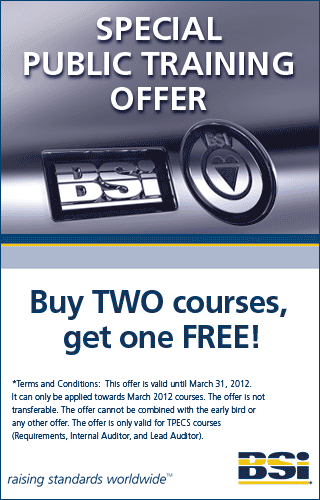
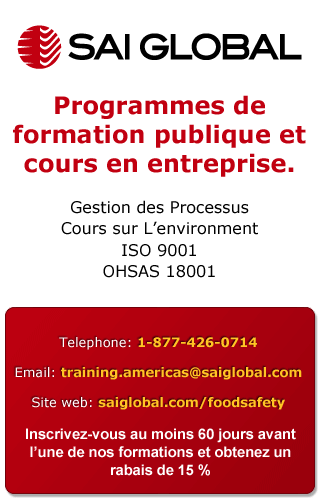
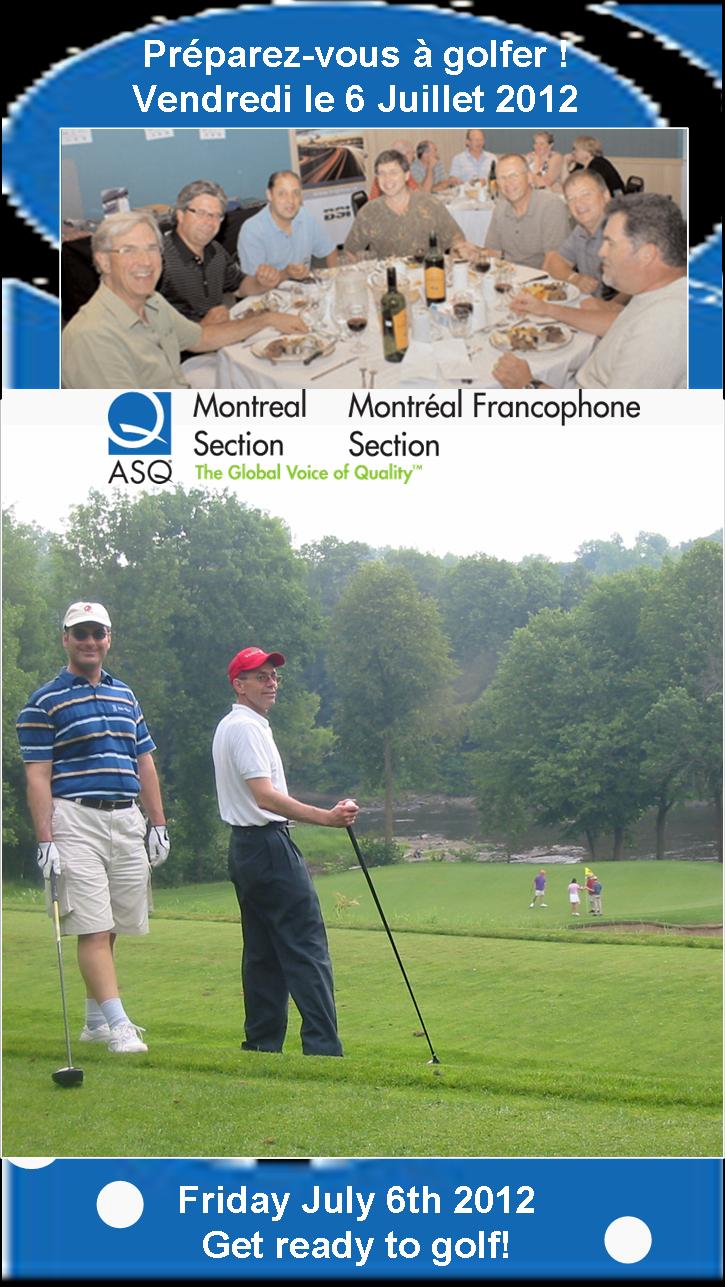
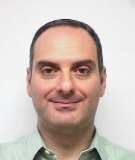
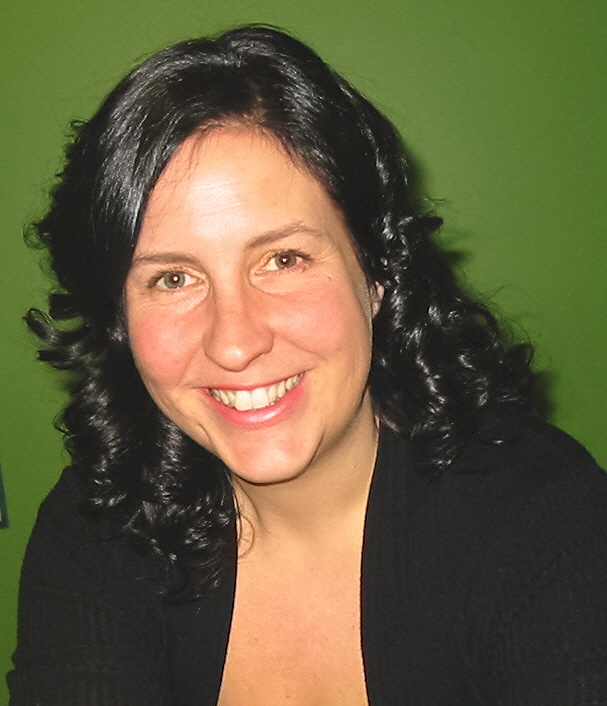
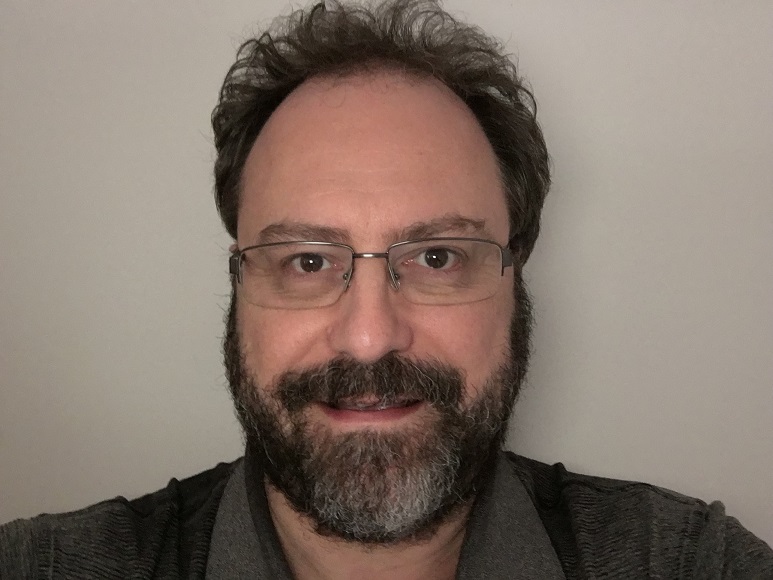
 By
Sukhvinder S. Jutla,
2011-12 Program
Chair
By
Sukhvinder S. Jutla,
2011-12 Program
Chair